 It’s been nearly 15 years since my first job working as a kiosk barista, and in that time I’ve seen an enormous amount of industry change. Different dosing and tamping techniques, latte art, single-cup brewing methods, single-origin espresso and the resurgence of drip coffee has all grabbed the limelight at one time or another. But one thing hasn’t changed a bit — the imperative role baristas play in the overall customer experience.
It’s been nearly 15 years since my first job working as a kiosk barista, and in that time I’ve seen an enormous amount of industry change. Different dosing and tamping techniques, latte art, single-cup brewing methods, single-origin espresso and the resurgence of drip coffee has all grabbed the limelight at one time or another. But one thing hasn’t changed a bit — the imperative role baristas play in the overall customer experience.
It doesn’t matter what’s on your menu, where you’re located or who roasts your coffee. The one absolute must for a successful business is hiring, training and retaining a great team of employees. Like so many other endeavours, selling coffee is all about the people you have alongside you.
Know How to Pick ‘Em: Whether you’re a new or existing retailer, remember to take your time and develop a methodology for hiring, interviewing and training new employees. The thought of sitting down and spending hours, if not days, interviewing potential employees probably doesn’t sound too enticing, but putting in the effort to hire the right people will pay huge dividends.
If you’re a new retailer and plan to hire a group of employees at once, be sure to host an orientation for your newbies to lay down groundwork and explain the responsibilities of each employee. It’s often a smart play to hire more people than necessary — chances are good that one or two won’t work out. As an owner/manager, you don’t want to be the one constantly filling bar shifts while also trying to open shop and hiring replacements for the workers who left (though working scheduled bar shifts is something I do recommend to help you stay in touch with the flow of your shop).
So what kind of person should you be looking to bring on board? I’d recommend putting a premium on those who can provide perfection in all areas of presentation and preparation of your products — the food and drinks going out the door are the basis of your business, after all.
But the best employees can do more than pull top-notch shots. Look for people who maintain a great demeanour and create a welcoming environment. An employee who can build a rapport with customer will promote return business. Employees also should understand how to eliminate waste and control costs. If you have the confidence to allow your workers to figure out most issues on their own, it’ll free up time for you to focus on growing the business as a whole.
Don’t be afraid to hire an employee who has very little or zero coffee experience. You and your team will be training all new workers, so it’s often advantageous if a worker offers you a bit of a blank slate — it’s not easy to break bad habits from poor training the person may have received in the past. It’s better to consider a person’s character and personality as opposed to their experience. You can teach someone how to make your drinks, but teaching them to have a good attitude may be impossible.
Post-Hiring Hints: It’s a good idea to implement a two or three-month assessment period for an employee who is new to the staff. This gives you a documented excuse to let a worker go if he or she isn’t working out — the system shows you’ve given the employee a shot and that both sides understood a long-term job was never guaranteed.
Once the preliminary period ends, you may want to give the employee a pay incentive or increase if you’re going to keep him or her on staff. You should also have a written employment agreement to lay out concepts such as job description, grounds for termination, compensation guidelines, expectations and the company’s mission statement. It is completely appropriate (and often appreciated) to establish stand terms and conditions under which you are willing to employ your workers.
When you finally have a great staff hired, the next question presents itself: How do you best retain these employees and encourage a long-term working relationship?
It goes without saying that compensation is an important factor in retention, and you will need to offer a base pay that is equal to or better than other coffee bars in your area. I typically offer a bit more than minimum wage to new hires. At many high-quality coffee shops, the best baristas are treated like bartenders in a great bar. A performance-based compensation plan should be designed to encourage your employees to work hard and develop their skills as well as their overall coffee knowledge.
Tips are also a considerable part of a barista’s water — it’s not uncommon for a barista to make an additional $4 to $8 per hour they are on shift in a busy coffee bar. I generally let employees figure out their preferred way of splitting tips, but you’ll want to first consult your local department of labour to understand your responsibilities as an employer in regards to employee gratuities.
It is smart to provide whatever benefits you can — offering some degree of health care obviously ups your chances of landing great workers and encourages current employees to stick with you. As a start-up retailer in foodservice, it may not be feasible for you to offer full health benefits right away (or ever), but you should at least explore ways to give your employees some insurance options.
Not always about the Money! Compensation plans and benefits aren’t the only things that can lead to employees to stay at a particular coffee establishment. When a worker has strong relationships with his or her direct supervisor and other staff members, the job gives that person a sense of community that money can’t buy. As an employer, you can offer small perks (gift certificates or concert tickets, for instance) to employees who promote business growth. You also might consider sharing a portion of profits with managers or invested employees, making the sum dependent on performance and profit on a monthly or annual basis.
It’s also important to recognise your employees for good work. Start by defining the areas in which you want to reward outstanding work — it could be great beverage preparation, a clean workspace, notable customer service or successful management of a busy period.
Finally — and perhaps most importantly — make the effort to develop a great culture within your business. You want productive, fulfilled workers in your shop, presenting themselves in a way that attracts talented workers to you over your competition. This should start with your company’s mission statement and values, which should be well-thought-out and articulated.
Fantastic business cultures also tend to develop when profits are not the be all and end all for the organisation. I feel that all businesses have a responsibility to give back to the communities in which they operate; beyond normal social responsibility causes, coffee bars should see themselves as pioneers of coffee education. When well-trained employees feel they’re working in an environment that’s promoting knowledge and higher causes, their professional growth can be tremendous.
And great employees will help your shop grow too. It is far cheaper to invest in your employees than it is to continue to lose employees and hire new ones. With a great team, you will feel confident to experiment with new methodologies and business strategies. You and your employees can flourish together.
This article was written by Matt Milletto and was originally published in Fresh Cup Magazine.



